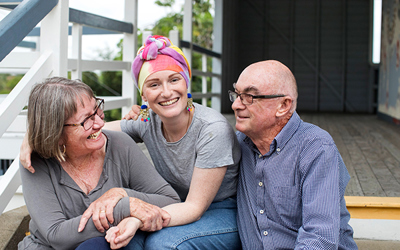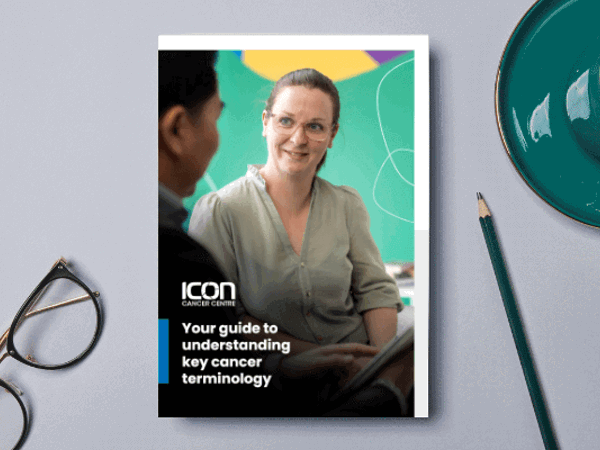
Supporting women through early menopause after cancer treatment
Everyone deserves the opportunity to make informed decisions about their care. It’s important that you understand the key financial terms relating to your cancer treatment.
Here’s a guide to some of the terms you may come across before and during your treatment.
If your private health insurance cover has a co-payment, this is the amount you agree to pay each day towards the cost of your hospital stay.
Also known as an out-of-pocket expense. This refers to the amount of money that is owing between the cost of your cancer care and what Medicare and your private health insurance covers. The gap fee is paid for by the patient.
This is where you are fully informed about the costs associated with your medical service or procedure before it takes place. This includes details about:
Total Costs: The overall cost of the service or procedure.
Insurance Coverage: How much of the cost will be covered by private health insurance or a government health scheme.
Out-of-Pocket Expenses: Any gap fees or additional costs that the patient will need to pay directly.
Payment Options: Available options for paying the out-of-pocket costs.
The aim is to ensure that patients understand the costs of healthcare decisions, allowing them to make informed choices about their care. This process is particularly important in situations where there might be significant costs that are not fully covered by insurance or government programs.
The Medicare Safety Net is a threshold designed to help those who have incurred high medical costs, providing you a higher Medicare benefit back for out-of-hospital costs. You can check your Medicare Safety Net balance any time using your Medicare online account through myGov or the Express Plus Medicare mobile app.
The MBS is a list of the medical services (known as MBS items) for which the Commonwealth Government will pay a Medicare rebate, to provide patients with financial assistance towards the costs of their medical services.
This refers to medical expenses for services provided outside of a hospital setting. These can include visits to general practitioners (GPs), specialists, diagnostic tests (such as blood tests, X-rays, and MRIs), physiotherapy, psychology services, and other allied health services.
Expenses that are not covered by Medicare or your private health insurance.
The Pharmaceutical Benefits Scheme (PBS) subsidises the cost of medicine for most medical conditions, including certain chemotherapy drugs. The scheme is available to all Australian residents who hold a current Medicare card.
The PBS Safety Net protects patients who require a large amount of PBS or Repatriation Pharmaceutical Benefits Schedule (RPBS) items. Ask your pharmacist to record your supply of PBS and RPBS items on prescription record forms. When you reach the Safety Net threshold within a calendar year, you will be eligible to receive free or discounted PBS or RPBS medications for the rest of that year.
The RPBS provides eligible people with access to a wide range of medicines and wound care items at a concession rate. The scheme is available to those that have an assessed clinical need and hold a Veteran Gold Card, Veteran White Card or Veteran Orange Card.
Some people pay up front for treatment where private health insurance is usually used to cover the cost of the treatment (e.g. chemotherapy treatment in a day hospital).
We cover essential terminology used throughout each stage of your journey, including treatment terms, medical procedures, common side effects, and more.

The content on the Icon Oncology website is for informational purposes only and should not be considered medical advice. It is not a substitute for consultation with a qualified medical practitioner. For personalised medical guidance, please consult with your GP or another qualified healthcare provider.

Discover our comprehensive collection of content designed to inform, support, and guide you through every aspect of cancer care. From the latest news and updates to personal patient experiences and educational resources, these materials provide valuable insights to help you better understand cancer, treatment options, and the journey ahead.